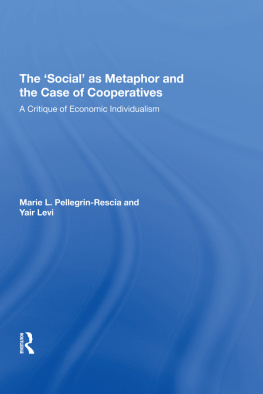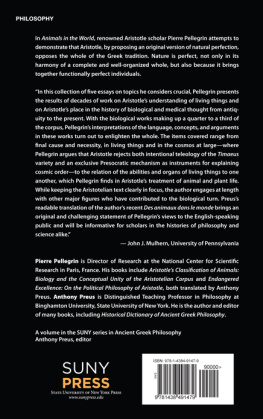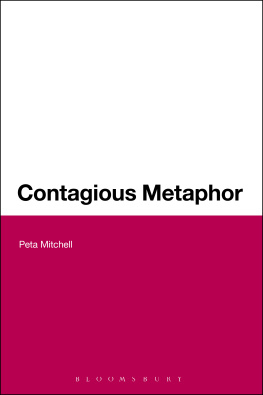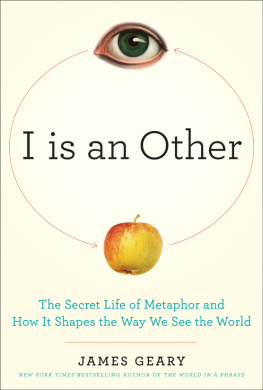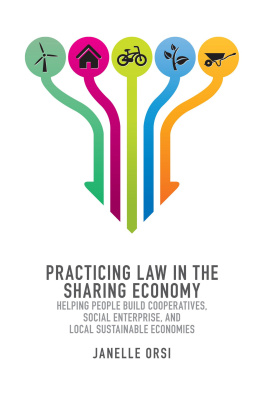The Social as Metaphor and the Case of Cooperatives
First published 2005 by Ashgate Publishing
Reissued 2018 by Routledge
2 Park Square, Milton Park, Abingdon, Oxon OX14 4RN
711 Third Avenue, New York, NY 10017, USA
Routledge is an imprint of the Taylor & Francis Group, an informa business
Marie L. Pellegrin-Rescia and Yair Levi 2005
All rights reserved. No part of this book may be reprinted or reproduced or utilised in any form or by any electronic, mechanical, or other means, now known or hereafter invented, including photocopying and recording, or in any information storage or retrieval system, without permission in writing from the publishers.
A Library of Congress record exists under LC control number: 2005011783
Notice:
Product or corporate names may be trademarks or registered trademarks, and are used only for identification and explanation without intent to infringe.
Publishers Note
The publisher has gone to great lengths to ensure the quality of this reprint but points out that some imperfections in the original copies may be apparent.
Disclaimer
The publisher has made every effort to trace copyright holders and welcomes correspondence from those they have been unable to contact.
ISBN 13: 978-0-815-39826-4 (hbk)
ISBN 13: 978-1-351-14524-4 (ebk)
Contents
by Marie L. Pellegrin-Rescia
Marie L. Pellegrin-Rescia
Yair Levi
Marie L. Pellegrin-Rescia
Marie L. Pellegrin-Rescia with Yair Levi
Guide
Marie L. Pellegrin-Rescia
Marie L. Pellegrin-Rescia, doctor in philosophy and social psychology, and docteur dEtat in sociology, is currently Professeur Director of the CUEM Master (Consortium des Universits de lAire Euro-Mditerranenne et des Pays du Sud) entitled: Ethical Values as Means of Change (Paris and Sicily, Italy). She chairs the CUEM Association as well as the anthropology and social psychology Seminar Jean Stotzel, (Paris, Sorbonne).
As an anthropologist and a linguist, Marie L. Pellegrin-Rescia works on the Language Acts and the categories enunciating the reality which she further develops in the present book. Her founding publication in this field is Des inactifs aux travaillants: la recherche de catgories heureuses (Descle de Brouver, 1993) and Sommes-nous tous des travaillants? (Descle de Brouver, 1993). Other publications linked to this theme are Handicap, valori et catgorie (Rome, Edizioni Mediterranee), Le sens du partage: reconnaissance et rciprocit and Largent et la perte (Paris, Descle de Brouver).
With Yair Levi, she presided the GIISAM (International and Interdisciplinary Groups of Sociologists of the Mediterranean Area) and founded INCONTRI, an international and interdisciplinary review published in Sicily.
Yair Levi
Yair Levi holds a B.A. and M.A. from the Hebrew University of Jerusalem and a Ph.D in political sciences from the State University, Lige. He is Scientific Director of CIRCOM (International Research Centre on Rural Cooperative Communities) and editor of the Journal of Rural Cooperation , Israel. He has been Senior Lecturer at Haifa University and is author, inter alia , of Community and Cooperatives in Participatory Development (with H. Litwin, Gower, UK, 1986) and of Towards Self-Management in New Land Settlement Project (with G. Naveh, Westview, USA, 1988).
In the framework of Oasi Citt Aperta (Troina, Sicily), Marie L. Pellegrin-Rescia and Yair Levi have edited the series Collana Azioni e Ricerche , which has published the following books: Marie L. Pellegrin-Rescia, Handicap: valori e categorie ; and Yair Levi (with A.R. Montani) Cooperative sociali e handicap mentale: un ripensamento dei concetti di cooperazione e di integrazione ; and Yair Levi, Realta e Utopia in una Comunita Siciliana (Troina, Sicily, Oasi Editrice Mediterranea, 1993; 1995).
Despite the relative newness of the book or maybe thanks to it a number of friends and colleagues were kind enough to comment on it as from the initial stages of writing. The first author thanks all the sceptical and critical friends as well as those in agreement or even enthusiastic. By discussing and taking this book seriously, both categories gave it the honour of life.
The second author is grateful to a few friends who read a first draft of the book. Among these were Peter Davis, Johanan Stryjan, Menachem Topel and Gidon Kressel. A special token of gratitude goes to Thomas Gray and Ian Macpherson, who made valuable criticisms of whole sections of the text. Meaningful suggestions and technical advice were provided by Ido Keren in preparing the manuscript. Thanks are due to Daphna Bar-Ness for her assistance in preparing the bibliography.
We are grateful to the staff of Ashgate for their professional accompaniment, and to our families, who patiently endured the hardships of such a multi-year endeavour.
A special debt of gratitude goes to the Foundation Oasi of Troina, Sicily, and its spiritual head, Don Luigi Ferlauto, for the inspiring effect of the emerging Citt Aperta and for funding the travel expenses involved in the work.
This book attempts to answer one of the most intriguing questions of our time: should we accept as a fait accompli the way our society is conceived and shaped, or can we have a say in this matter and assume the ethical responsibility involved? This suggests substituting an economy based on reciprocity and interdependence for one based based on the solipsist self-interested individual.
Our starting point is the social as a metaphor , that is to say a set of policy measures aimed to remedy the dysfunctions caused, in particular, by the economic: by this term we refer to an economy that (according to Polanyi) is disembedded from the other instances, mainly the social and political ones. In this context cooperatives function as attempts at alternative, rather than remedial, initiatives. The question is how such issues can be tackled at the global level.
To do this, the authors set out to examine the categories of language we use to conceive and shape our society and the world in which we live, by resorting to two interacting registers: the imaginary and the symbolic. Are these categories those of the imaginary register that privileges the notions of completeness , the accumulation of assets and money and the control over the Other and nature; in brief, the economic created by modern man to achieve his independence and alleged freedom? Or are, rather, these categories those of the symbolic register that privileges the notions of interdependence, reciprocity and debt, hence of incompleteness allowing for a situation of lack and loss? At the core of the problem we have two notions of man: on the one hand, the self-interested individual, the solipsist and undivided actor, and on the other, a subject prepared to admit his finitude, hence divided. As the French poet Rimbaud puts it, I is the Other.
Two major approaches are used to analyse our subject matter. The first, from sociology, puts on stage a self-centred individual facing two realities, the economic and the social, with the task of integrating them. The second is a linguistic-anthropogical approach (AL). No longer seeing language as a means to represent a reality, or to communicate, and rather positing it as an act of enunciation, this approach avoids making the economic and the social two realities and instead questions the very enunciation of what is designated by these terms. This approach shows that the same categories of language, in a view of imaginary completeness, are paradoxically at work in both cases. As a matter of fact, the economic logic, typical of the individual and pursuing the imaginary of the full, the more, and accumulation, avoids all that could menace its completeness. The social, on its part, also doesnt tolerate losses, or risks, and aims to repair in an imaginary way all the slashes caused to the social tissue by the rush for completeness and aims to establish alternative centres of activity to control the economic.

